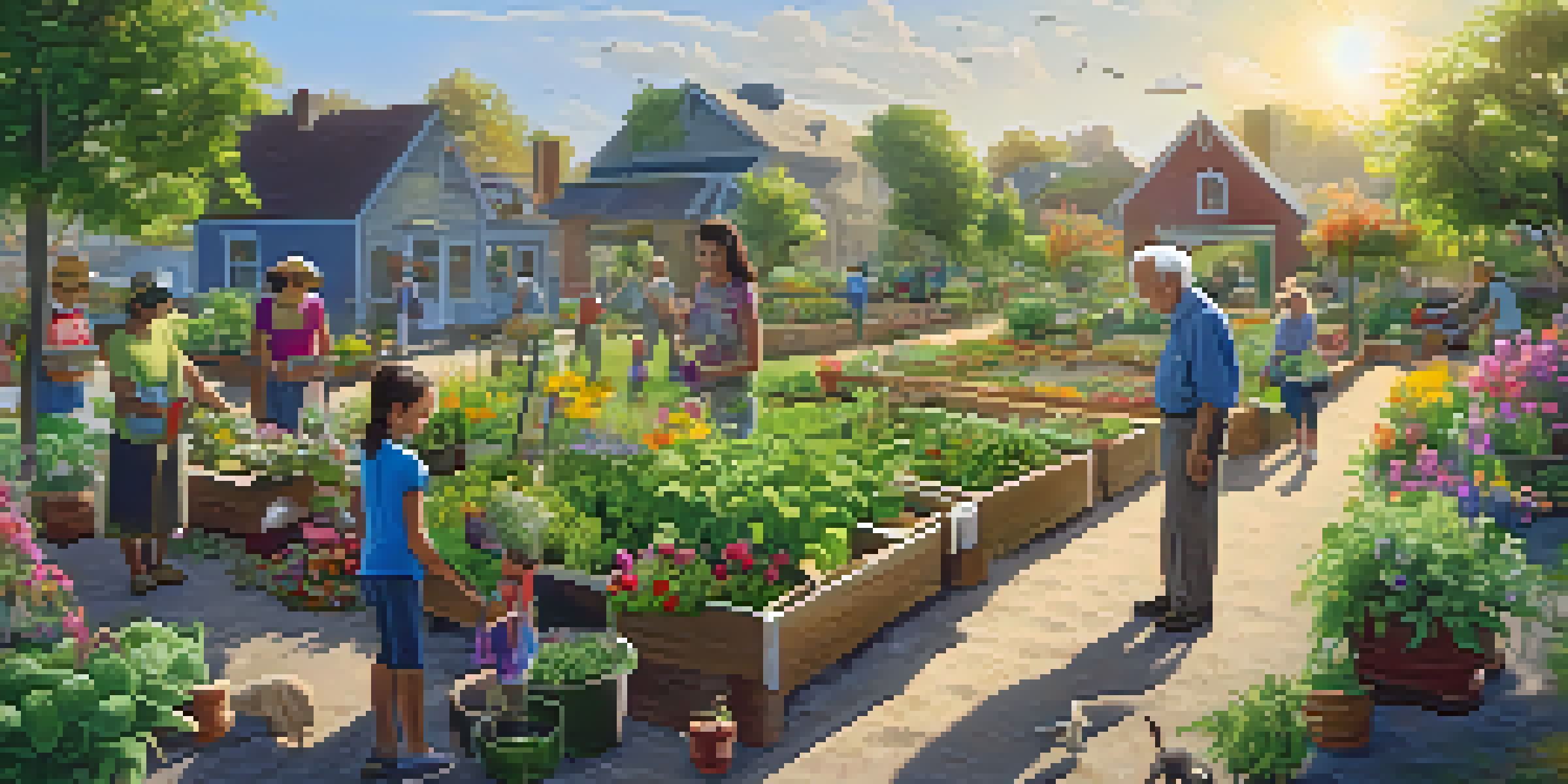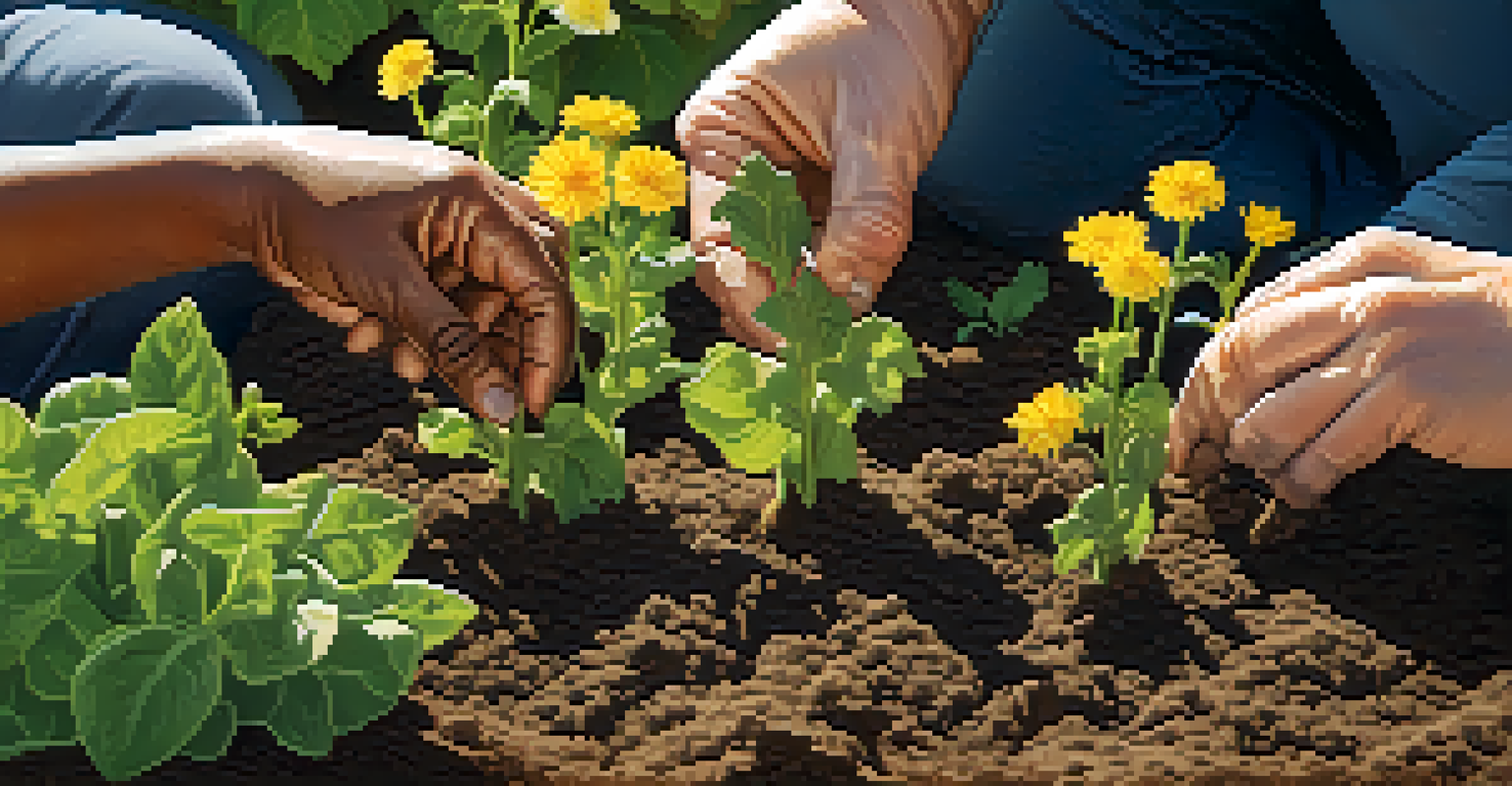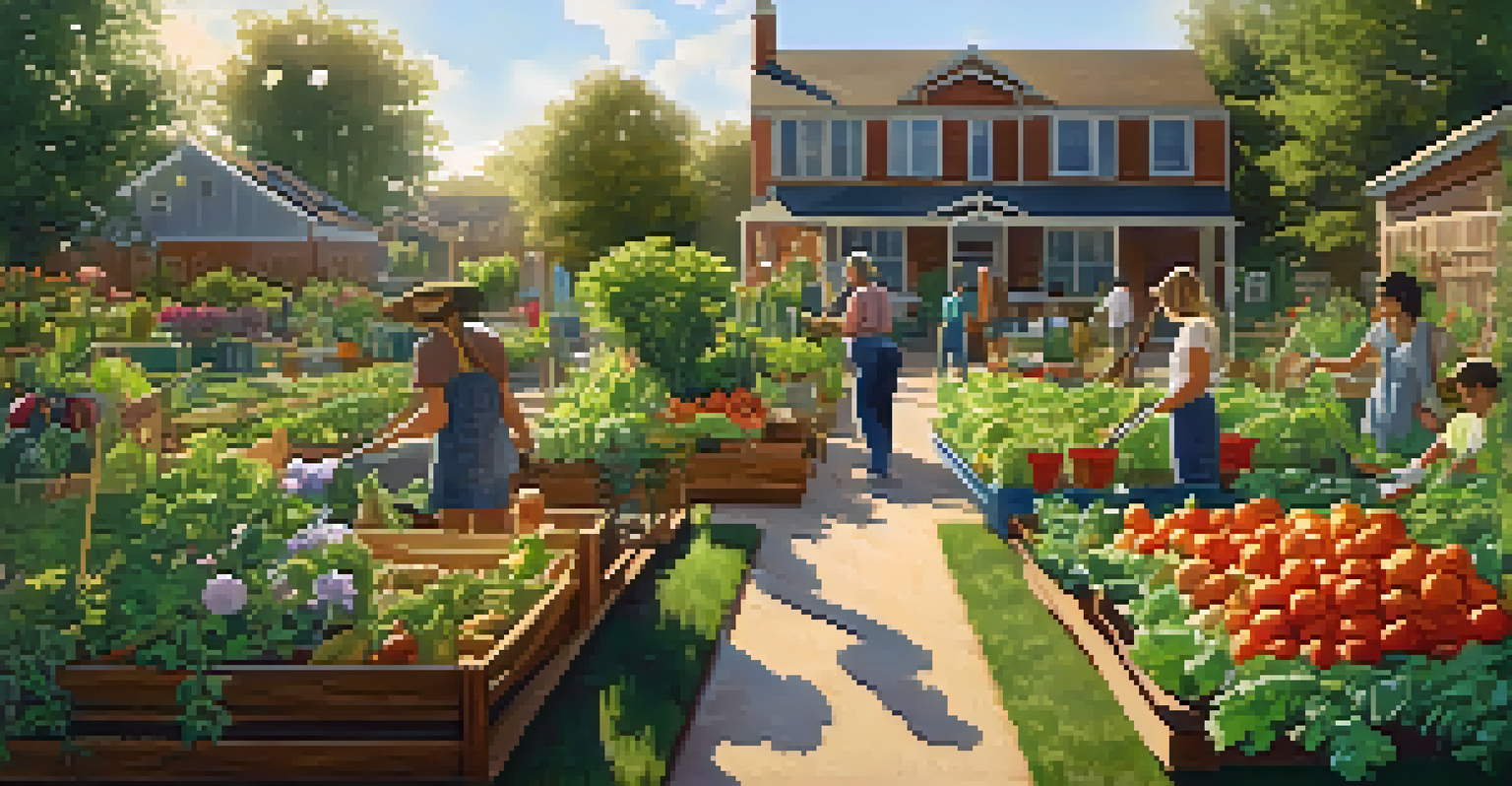Building Social Connections Through Community Gardening Efforts

The Growing Trend of Community Gardening
Community gardening has taken root in many neighborhoods, providing a shared space for people to connect. These gardens transform vacant lots into vibrant hubs of activity, where individuals with diverse backgrounds come together. Through gardening, participants not only cultivate plants but also friendships and a sense of belonging.
To plant a garden is to believe in tomorrow.
As more people recognize the benefits of gardening, community plots have become a staple in urban areas. They serve as a reminder of the power of collaboration and the beauty of nature in our lives. This trend is not just about growing vegetables; it’s about growing relationships.
From small backyards to expansive city parks, community gardens can be found almost everywhere. They encourage individuals to step outside their homes and engage with their neighbors, fostering a community spirit that can be hard to find in today’s fast-paced world.
Enhancing Neighborhood Bonds
One of the most beautiful aspects of community gardening is the way it strengthens neighborhood bonds. When people work side by side to cultivate a garden, they share stories, laughter, and sometimes even produce. This shared labor cultivates trust and camaraderie among participants.

Gardening together provides a common goal, breaking down social barriers and promoting inclusivity. Whether you’re a seasoned gardener or a complete novice, everyone can contribute in their own way, creating a sense of ownership and pride in the garden’s success.
Community Gardens Foster Connections
These gardens create shared spaces where individuals can build friendships and strengthen neighborhood bonds.
These connections often extend beyond the garden itself, leading to more engaged and supportive communities. Neighbors who may have never spoken before find common ground and often collaborate on other community initiatives.
Bridging Generational Gaps
Community gardening is a unique platform where different generations can interact and learn from each other. Older generations often share their gardening wisdom, while younger members bring fresh ideas and energy. This exchange fosters mutual respect and understanding.
Gardening adds years to your life and life to your years.
Imagine a grandfather teaching his granddaughter how to plant seeds, while she explains the latest gardening apps to him. These moments not only enhance gardening skills but also build lasting bonds between family members and neighbors alike.
By bridging these gaps, community gardens create a rich tapestry of experiences and knowledge sharing. They remind us that everyone, regardless of age, has something valuable to contribute.
Promoting Mental Health and Well-Being
Gardening has long been known for its therapeutic benefits, and community gardening amplifies these effects. Spending time in nature reduces stress, enhances mood, and fosters a sense of peace. When combined with social interaction, these benefits are even more pronounced.
Working in a garden provides a break from daily routines and encourages mindfulness. The act of planting, weeding, and harvesting can be meditative, allowing individuals to focus on the present moment while connecting with others.
Gardening Enhances Mental Well-Being
Engaging in community gardening provides therapeutic benefits that reduce stress and promote a sense of peace.
Moreover, community gardens often prioritize inclusivity and accessibility, making them welcoming spaces for everyone. This creates an environment where people can find solace and support, both mentally and emotionally.
Encouraging Sustainable Practices
Community gardens not only bring people together but also promote sustainable practices. By growing their own fruits and vegetables, participants learn about the environmental impact of food production. This hands-on experience encourages eco-friendly habits that extend beyond the garden.
Gardening together fosters awareness about local ecosystems, biodiversity, and the importance of preserving natural resources. Participants often share tips on composting, water conservation, and organic gardening methods, creating a culture of sustainability.
As community members become more educated about sustainable practices, they can advocate for greener initiatives within their neighborhoods. This collective effort leads to healthier, more sustainable communities.
Creating Opportunities for Education
Community gardens serve as fantastic educational platforms for people of all ages. Workshops and classes can be organized to teach gardening techniques, cooking with fresh produce, and even environmental conservation. These opportunities foster a culture of continuous learning.
Children, in particular, benefit from hands-on gardening experiences that teach them about nature, responsibility, and healthy eating. Learning about where food comes from can instill a sense of appreciation and encourage better dietary habits.
Promoting Sustainability Together
Community gardens educate participants about eco-friendly practices, encouraging sustainable habits that benefit the environment.
Moreover, community gardens can partner with local schools to incorporate gardening into their curriculums. This collaboration not only enhances academic learning but also strengthens ties between educational institutions and the community.
Fostering Community Resilience
In times of crisis, community gardens can be a source of resilience and support. They provide fresh produce during food shortages and create a network of individuals who can rely on one another. This sense of community becomes even more crucial during challenging times.
Engaging in gardening projects can also empower communities to tackle larger issues, such as food insecurity and urban decay. When people come together to work towards common goals, they build a stronger foundation for their neighborhoods.

As community members unite to grow food and share resources, they cultivate a spirit of self-sufficiency that can help navigate future challenges.